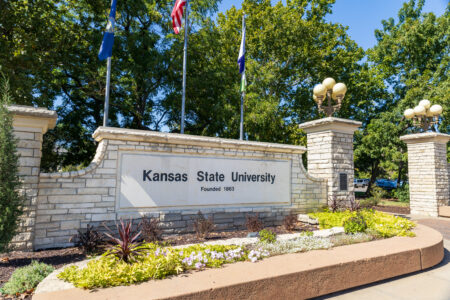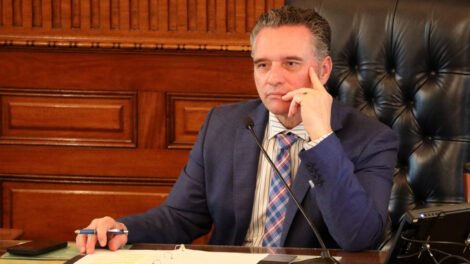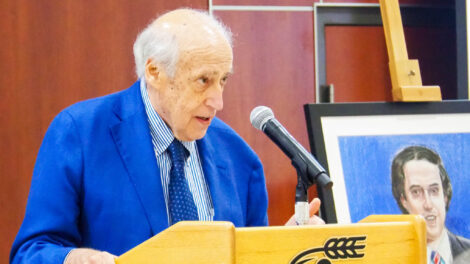Kansas State University seeking to remove the word ‘diversity’ from its mission statement
Regents also to consider first steps on study of tenure policies

photo by: AdobeStock
An entrance to Kansas State University's campus in Manhattan is pictured in this 2024 photo.
Kansas State University is seeking permission from the Kansas Board of Regents to modify by one word its six-paragraph mission statement.
The one word the university is looking to remove: Diversity.
At Wednesday’s meeting of the Regents — the state-appointed board that oversees Kansas’ public universities — K-State officials will ask to have the word “diversity” removed from the opening paragraph of the university’s mission statement in an effort to comply with a new state law.
K-State’s current mission statement, which it has had since late 2008, says: “The university embraces diversity, encourages engagement and is committed to the discovery of knowledge …”
The proposed change would remove the word “diversity” and replace it with “all,” thus stating that the “university embraces all.”
A staff memo to the Regents says the change is being requested as a result of Senate Bill 125, which was approved earlier this year. The bill was the state’s primary budget bill, but also included a number of provisos including, as the Journal-World has reported, one that sharply limits how the idea of diversity can be applied in state agencies.
While the bill doesn’t specifically mention mission statements of universities, it does require all state agencies to eliminate “any mandates, policies, programs, preferences and activities relating to diversity, equity and inclusion.”
The bill and its diversity proviso have most recently been in the news because the bill also requires that state employees — including university employees — remove their preferred pronouns and gender ideology from the signature blocks of state email accounts and “any other form of communication.”
KU began implementing that policy change in July. The national Foundation for Individual Rights and Expression has objected to portions of the policy and asked both KU and the Regents to modify their stances on the issue, and several faculty members have begun protesting the change by adding special statements to their emails.
KU, thus far, has not made any request to the Regents to change its mission statement as a result of Senate Bill 125. KU’s mission statement doesn’t include the word diversity, but rather states: “We educate leaders, build healthy communities and make discoveries that change the world.” The university also publishes a set of values, but they don’t specifically address diversity. Instead, they highlight five beliefs: integrity, respect, innovation, stewardship and excellence.
The Regents staff is recommending approval of the K-State wording change; however, the item is on the Regents’ discussion agenda, meaning the board may seek additional information or debate the change.
The Board of Regents meets Wednesday in Topeka, and will have several other items on its agenda. The meeting, which includes a session on Thursday, will include discussion and a vote on funding requests the Regents will make of the Kansas Legislature for next year’s budget. Also on the agenda is a discussion about whether some bachelor’s degree programs should be structured as three-year degrees instead of four-year programs, and approval of the Regents’ goals for the year.
Those goals include a “comprehensive review of tenure, post-tenure review and instructional workload policies at the state universities.” As the Journal-World reported in July, the Regents indicated they wanted such a study, in part, because a bill was introduced in the Kansas Legislature last session that would largely eliminate the key protections of the university tenure system.
That bill — HB 2348 — never got a vote in committee, but it also wasn’t killed. The bill will be waiting for legislators when they begin their next session in January.
The issue of tenure — which provides strong job protections to designated faculty members — has long been listed as one of the most important issues to faculty members across the state, and any attempt to change or remove it is expected to be controversial.





